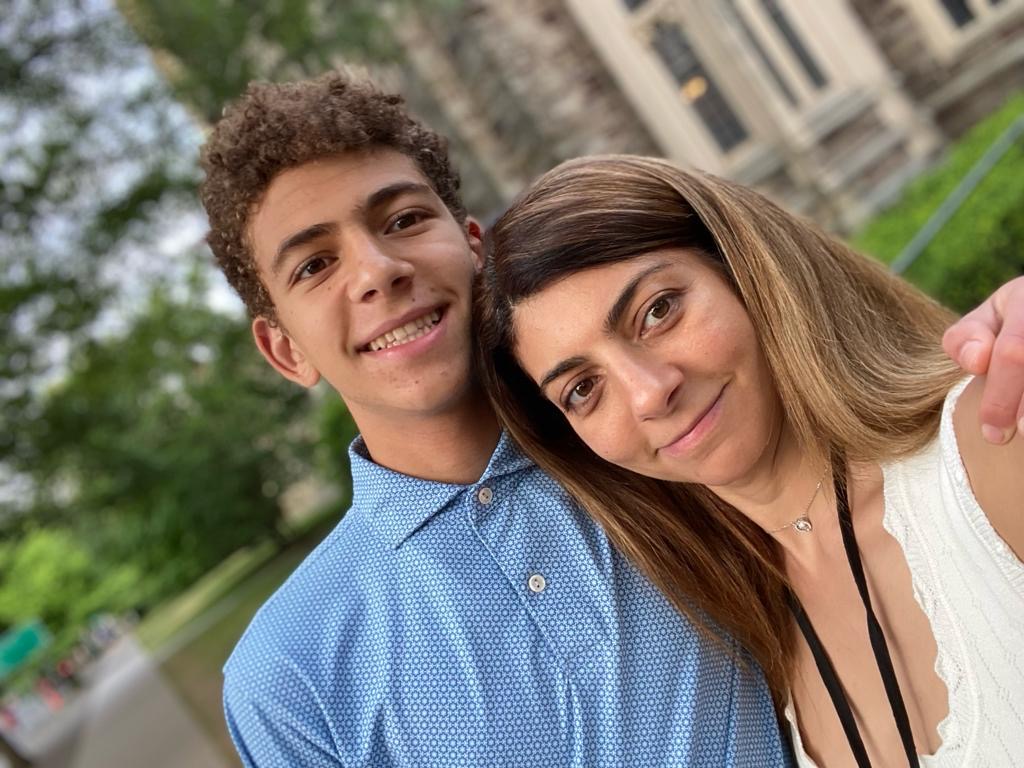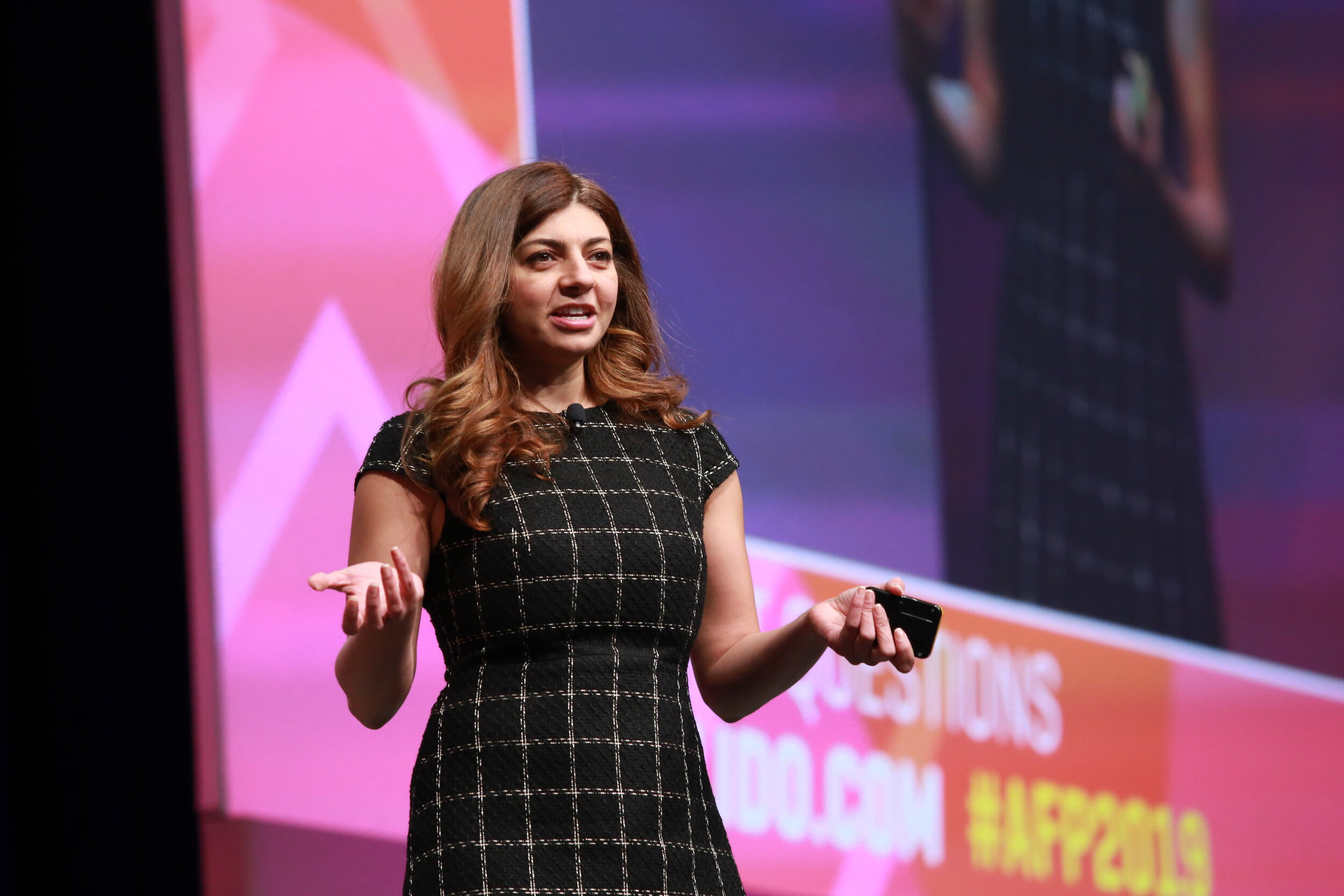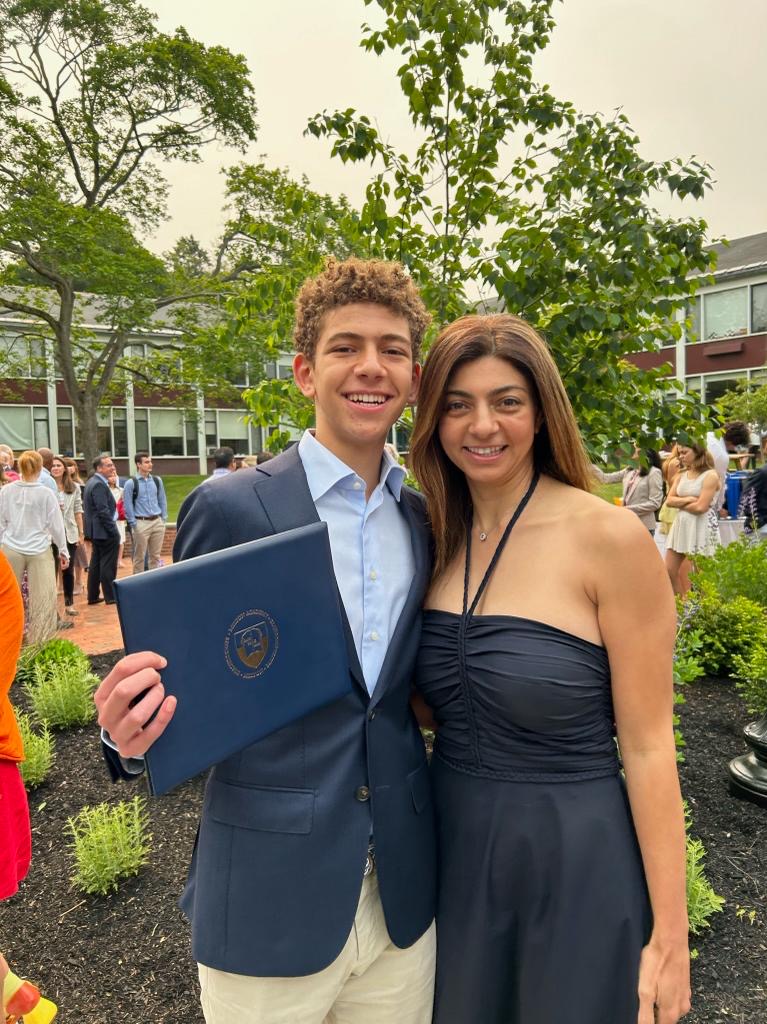Embarking on a mission to humanize technology, Rana El Kaliouby, CEO of Affectiva, found herself pioneering Emotion Artificial Intelligence (AI) during her PhD at Cambridge University. Recognizing the lack of emotional intelligence in technology, Rana co-founded Affectiva at MIT, now a multi-billion dollar industry with applications spanning health, automotive, video communications, and robotics.
Therefore, Rana El Kaliouby and her son Adam provide us with a fascinating glimpse into the future of AI and its diverse range of applications, making it clear why this is a topic of great significance.
Background and Journey
Q: Can you share your personal journey and what led you to co-found Affectiva, particularly in the field of emotion recognition technology? What real-world applications do you find most impactful?
Rana: I’ve been on a mission to humanize technology before it dehumanizes us. My journey pioneering Emotion AI began during my PhD at Cambridge University, where I noticed that technology has lots of cognitive intelligence but no emotional intelligence. Later at MIT, I saw an opportunity to commercialize my research and started my company Affectiva out of MIT to bring Emotion AI to several industries.
Today Emotion AI is a multi-billion dollar industry with applications in health, automotive, video communications, and robotics. In 2021, I sold the company to Smart Eye, a publicly traded company headquartered in Sweden where we are focused on the automotive industry – developing technologies that detect driver distraction and fatigue to ensure our roads are safer.

Role as a Woman in AI
Q: How do you see your role as a woman in the tech industry, and what advice do you have for other women aspiring to enter this field?
Rana: I am very passionate about bringing more women to AI. Personally, building a career in AI meant economic and social mobility for me and my family. I’d like to see more women participate and do well in this AI revolution. Unfortunately, though, diversity in AI remains a challenge. In the third quarter of 2023, AI companies secured over $17.9 billion in funding, but this funding isn’t evenly distributed: For instance, in the UK, 80% of AI venture capital in the UK goes to all-male teams, while all-female teams received only 0.3%.
Globally, just 22% of AI professionals are women, and at major tech companies, women hold only 20% of technical roles. My advice for women is to dive in! We need you. You don’t have to have a technical background to participate.
Impact and Significance of AI
Q: More broadly, how do you think AI can contribute to societal well-being and understanding of human behavior?
Rana: One of the trends that I am excited about for 2024 is how consumers will use generative AI as personal AI assistants that will support many aspects of our lives, both professionally and personally. As a co-pilot, it can help you be more productive, access information faster, help brainstorm, and conduct research. As a co-creator, it helps you realize your creative self-expression and assists in developing all kinds of content.
As a companion, it is a kind and supportive thought partner that offers friendly advice in an empathetic and emotionally intelligent manner, just like a friend. For these personal AI assistants to be effective they need to have emotional and social intelligence, which is where Emotion AI comes into play. One of the most powerful applications of Emotion AI is in mental health.
Human-AI Collaboration
Q: Some fear that AI might replace certain jobs. How do you see the relationship between humans and AI evolving, and what steps can be taken to ensure that AI complements human capabilities rather than replacing them?
Adam: I am a freshman in high school in the US. I have been using AI as a copilot for everyday tasks. Sometimes, I ask ChatGPT to create a menu for a dinner party or help make a study plan for my exams or come up with gift ideas for my friends. Recently, I have been working on improving my cooking skills.

One night, I decided to try and make a perfect strip steak. I dried it, seasoned it, and prepped everything else. The only problem was I didn’t know whether to pan-sear it or leave it in the oven in addition to pan-searing it. So I decided to ask my trusty sous-chef ChatGPT.
I took a picture of my steak and asked ChatGPT “Is this steak thick enough to be put in the oven after pan-searing?”. Its response was to put it in the oven after pan-searing, and it was definitely right. The steak turned out perfect.
AI is also a great co-creation tool to enhance my ideas and creativity. I was building a website for my squash coach, and instead of writing all the text from scratch, I provided ChatGPT with all the background information and used it to draft the website text. Of course, I still had to heavily edit, but it was a good start. I also used a text-to-image generator to generate stock photos for the website.
Finally, I believe AI has the potential to help improve our lives. I am passionate about the lack of financial literacy for new immigrants in the United States. So I created a GPT Agent that is a bilingual financial advisor for US immigrants, particularly Arab immigrants. The chatbot answers financial questions in Arabic or English.
Youth Engagement in AI
Q: Given the rapid advancements in AI, how can we better integrate the younger generation into this technology and prepare them for future opportunities? What initiatives or programs do you think are essential to inspire and educate young people about AI and its possibilities?
Rana: I think it’s imperative that we include young people in this AI revolution. Not only because AI is shaping every aspect of our lives, including those of young people, but also because the younger generation are tech natives and so have creative views on what AI should look like.
As a parent, I love sharing my perspective on AI with Adam (and Jana!) while also learning from Adam since he’s often up to date on the latest AI tools (all via TikTok). I also love bringing Adam along to tech conferences. A couple of years ago, we attended an NFT conference in New York City. We would attend talks together, take notes and then compare notes later. It is so much fun. We did that again at the Peter Diamandis Abundance Summit last year in Los Angeles.

Here are some ideas to ensure that the voices of young people are heard and represented:
Give young people a forum to share their perspectives: Recently, I hosted a LinkedIn Live conversation with 3 Gen Zers: Kavya, a student at MIT, Tessel, graduating high school, and Adam, currently a freshman in high school. I first discussed AI with them four years ago on stage at the 2019 Affectiva Emotion AI Summit. In the past year, advancements in generative
AI have dominated the headlines, generating lots of excitement as well as fear. I was curious to speak with our Gen Z guests again – four years later – to hear how their views on the role and future of AI have evolved. And I was honestly mind-blown by how deeply immersed in AI they each were and how articulate they were around how to ethically build AI.
Create hands-on learning experiences for our youth: I would love to see more companies and organizations offer internship opportunities for young people. There’s currently a huge demand for AI talent, so investing early in young talent is smart. My company Affectiva ran a summer internship program for high school students (that was as competitive as getting into an Ivy school hahaha!). Many of our interns have gone on to do amazing things.
Adam: Integrate AI into the classroom and beyond: Create learning programs at schools (and beyond) where students get to experience AI technologies, as it’s the only way one can understand the capabilities as well as limitations of current AI. For example, English classes should allow students to experiment with ChatGPT for writing assignments. In history and science, students could engage in debates around how AI biases in our social justice systems or healthcare can have dire consequences in society.
AI-focused workshops and summer camps: These can spark interest in young minds. A few years ago, I participated in a summer program (Inspirit.ai) that taught me the basics of machine learning. I did a project at the end to monitor Twitter conversations and flag bullying behaviors against immigrants. I loved this program because it helped me learn AI in practical, real-world scenarios in a fun and engaging way.
Raise the visibility of Young AI Innovators: Showcasing the achievements of young innovators in AI can serve as inspiration. This could be through media, events, or school programs, highlighting how young people are already making strides in the AI field.
Diversity in AI
Q: Diversity in tech remains a significant topic. How do you think promoting diversity and inclusion can positively influence the development and application of AI technologies?
Rana: We need to diversify the face of AI. We need to attack this AI imbalance from several angles. We need to focus on fixing the supply chain of women in AI. We must start from very early education and encourage little girls and young women to consider jobs in AI as potential career options. Also, we need women role models. Personally, I am where I am today because I had amazing role models, mentors, and champions who opened doors for me and created opportunities. And with that came opportunity and then growth, and then success. Finally, I am on a quest to find diverse AI founders and investors. I have become especially interested in the intersection of AI and women’s health.
Adam: Promoting diversity and representation in AI is essential for developing technologies that reflect our society. As a young person who is passionate about AI, I believe youth involvement is key. We need to include young voices from diverse backgrounds in AI conversations. This can be done through inclusive educational programs and internships. This way, AI ends up being fairer and cooler because it comes from all sorts of ideas and experiences.
Egypt’s Role in AI
Q: Considering your Egyptian background, how do you see the future of AI development in Egypt, and what potential challenges and opportunities do you anticipate? Are there specific steps or collaborations you believe can enhance the adoption and impact of AI in Egypt?
Rana: I believe Egypt’s future in AI is promising. We have tech-savvy and motivated youth, a burgeoning startup ecosystem, and increasing government support for digital initiatives. However, challenges include a need for more robust infrastructure, more investment in AI literacy, and addressing data privacy concerns. Collaborations between academia, industry, and government are crucial, as well as fostering local AI talent through education and training programs, and creating innovation hubs to incubate AI startups.

Ethical Considerations
Q: With the increasing use of AI, what measures should be taken to ensure that the technology is developed and deployed ethically? How can we address concerns about privacy and potential misuse of emotion recognition technology?
Rana: We need to prioritize the ethical development and deployment of AI. We need to mitigate data and algorithmic bias through regular audits, ensuring diverse data sets, and involving a broad range of stakeholders in the development process to ensure varied perspectives and needs are addressed. With the explosion of generative AI, we need to ensure that women and marginalized groups have an equal place in the AI space.
Adam: One of the main concerns with Generative AI is its tendency to hallucinate. I was writing a research paper on garbage infrastructure in the US, and decided to ask ChatGPT to find some articles about the topic. I created what looks like a great list of articles. But then when I copied the link, it brought me to like an error page, like a 401 error. And so I went down all the articles and every single one it came up with, they were all fake.
I was confused why at first but the incident shed light on the fundamental basics of Large Language Models (LLMs) like ChatGPT and their ability to ‘fill in the blanks’ with convincingly plausible yet entirely fictional content. While these tools excel at generating text, their grasp on factual accuracy can be weak. So one has to be careful when using these tools and understand their limitations.
Balancing Innovation and Regulation
Q: Striking a balance between innovation and regulation is crucial. What are your thoughts on the role of regulatory frameworks in guiding the responsible development of AI, and how can this balance be maintained?
Rana: There is a natural tension between innovation and regulation. I am a proponent of thoughtful regulation. I like what the EU is doing with the AI Act.
Educational Pathways for AI
Q: Given the evolving nature of AI, how can educational institutions adapt their curriculum to prepare students for careers in AI-related fields, and what skills do you believe will be most valuable?
Rana: Our ability to ask questions and think critically will be more important than ever. Also, the ability to lead with empathy and care deeply about a problem to want to go all in on solving it.
Adam: AI is only a tool. It is still important to have curiosity and ask the right questions.
In this enthralling narrative of Rana El Kaliouby’s journey from Cambridge University to leading Affectiva, accompanied by her insightful son Adam, the profound impact and diverse applications of Emotion AI come to the forefront. Their dialogue explores the intricacies of technology while emphasizing the critical need for diversity, ethics, and a balanced approach to innovation and regulation.
As AI becomes pervasive, they highlight the importance of inclusivity, education, and youth engagement in shaping a responsible and empathetic AI future. With a keen eye on Egypt’s potential in AI, their conversation envisions a world where technology, guided by ethics, enhances human capabilities, fostering a harmonious coexistence of innovation and compassion.







Comment (1)
[…] a previous interview with Egyptian Streets, she stated, “I think it’s imperative that we include young people in […]